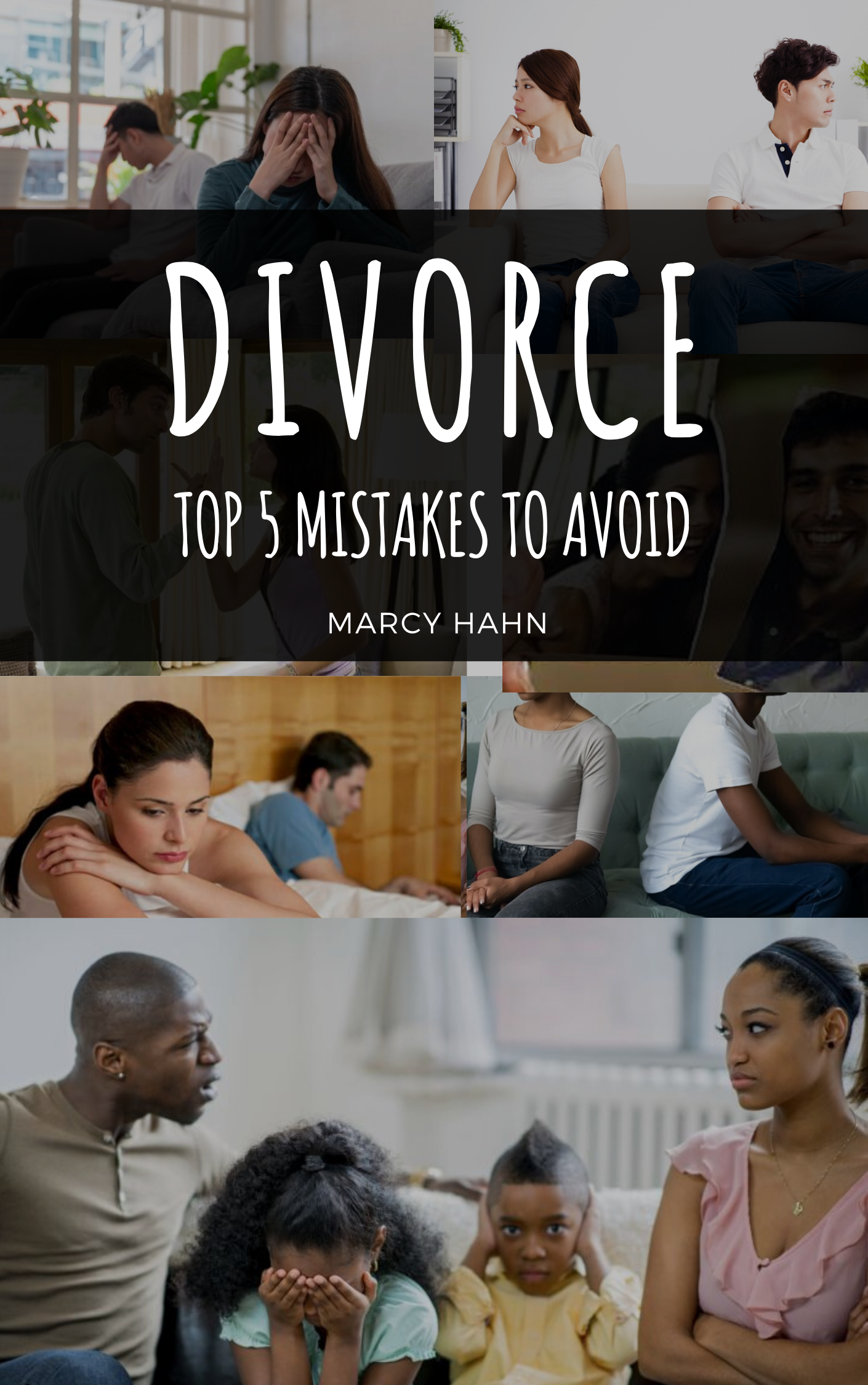What is the REAL Difference Between Collaborative or Combative Divorce?

Overview
In this episode, Marcy covers all aspects of collaborative divorce – what it is, what are its advantages, and why you may want to consider this method of divorce for your situation. There are a number of advantages and considerations to take into account when deciding on what type of method you choose to get divorced. Tune in to get the expert advice you can’t afford to miss.
Learn More
What is the REAL Difference Between Collaborative or Combative Divorce?
we’re going to address the global pandemic of the coronavirus and how to deal with the challenges it creates for your divorce.
In today’s episode, we’re going to cover collaborative divorce. What is it? What are its advantages and why would you want to consider it as a method for your divorce? Collaborative divorce is an alternative dispute resolution process that really benefits families. During the process you design a solution for your family, both emotional and financial, that avoids contentious litigation or court intervention. The process really empowers the participants to make decisions about their children, their finances and their health to reach a resolution both respectfully and confidentially. This is really important because when you go down the path of a traditional litigated divorce, everything that you deal with is public. It’s public information.
It’s filed in the court; your fight is a public fight.
And really the worst place for Family Law conflict is traditional court.
Traditional courts are just not really equipped to handle the emotional side of the divorce process. Only you know what’s best for your kids and you’re going to design a much better solution for yourself post-divorce. If you follow a collaborative process with your spouse, the way I think about it is everybody who gets divorce ends up in the same spot… so you end up divorced no matter which method of divorce you choose.
The question is, how do you want to spend your time and money getting divorced?
Or do you want to spend that time, money and energy coming up with solutions that can really help you move forward? And solutions that can really help you become better either co-parents or just better able to interact once the divorce process is final.
Collaborative divorce is really a way to empower yourself to do that and to spend your resources focusing on the future.
So how does it work? The first thing that the parties do is they enter into what’s called a Participation Agreement. In the Participation Agreement you agree to resolve your divorce issues without court intervention. Now, at the end of your divorce process, you’re still going to have to at least go to court one time to have your judgment entered by a court because as a practical matter, the only way to actually be legally divorced is to have a judge say, ‘okay, you’re divorced,’ but getting to that final divorce judgment and deciding what all of those provisions are going to look like does not happen in a court of law.
How does it happen? It happens in a series of meetings that you participate in to develop a comprehensive settlement. So each party is represented by an attorney. And there are typically two other professionals who are also part of the process, who serve as supportive professional neutrals. One is typically a mental health neutral and one is typically a financial neutral. So essentially you are forming a team that is going to help you stay focused on the children if you have children or stay focused on dividing your assets in the best, most equitable way possible, and you’re doing this where you’re not making it a public battle. It is a much kinder and gentler way to go about the process.
What are some of the advantages of collaborative divorce? There are many. First of all, it’s confidential and private. And it assures that your sensitive family matters are discussed, debated and resolved without the need for publicly filed court documents. Second is that the process is really focused on moving you forward and creating a new vision for your family, rather than rehashing the pain and mistakes of the past. Third, participants really control and design their own life solutions and I cannot overemphasize how important this is. This is so important because the volume of family law cases that the courts have to handle are simply crushing. The judge that’s assigned to your case in a traditional divorce simply does not have the time to know the intricacies of your family in order to make really good strong decisions about what your divorce judgment should look like…
For example, in the United States last year, there were over a million divorces entered. And of those a little over 28,000 took place in Michigan. If you break that down by the number of divorces that took place in the county where you live, you have on average, each judge handling approximately 450 to 500 divorces a year per County, well, there is no way that the judge who’s handling your case even though they may be brilliant at applying the law and they may be a wonderful judge…they are simply not in the best position to be the best decision maker about what works best for your family. Another benefit to the collaborative divorce process is that the compliance with settlement terms is greater because the parties designed it themselves. One thing I see so many clients struggle with is even after their consent, judgment or judgment of divorce is entered, they may have a former spouse who’s choosing not to follow those terms. And then you have to go back to court to have that judgment enforced. It’s very expensive. It’s emotionally exhausting. And if you are creating a judgment that really has both parties’ interest in mind when it’s being created, then you have a much higher likelihood that the parties are going to follow that once the divorce judgment is entered.
So another question that I often get about collaborative divorce is whether it’s less expensive than a traditional divorce. Collaborative divorce often reduces the time and costs of your divorce for many reasons, one being that you’ve entered into this Participation Agreement that I mentioned at the beginning. Under this Participation Agreement, one of the things that you’re agreeing to do is to voluntarily share financial information with each other, and to make full disclosure about your debts, assets and liabilities. The reason why that’s important is because in the traditional divorce process, you have to go through this lengthy fact finding discovery process which entails the other side asking you many questions that you have to answer formally under oath. The other side may want to ask you questions under oath at a deposition. There are no formal discovery rules that apply to your Participation Agreement. You essentially are agreeing upfront to a voluntary exchange of information and it makes the whole process much more streamlined.

Another benefit is that generally in a traditional divorce, you have to hire a financial evaluator. You may need to know the value of your marital home or the value of a business, or you simply need to know what are some scenarios for me, in terms of what I’m going to be able to afford financially going forward in a traditional divorce. Sometimes both sides are hiring financial evaluators to help them analyze the assets and liabilities.
In the collaborative divorce process, you only retain one expert who acts as a financial neutral to really help you sort out the best financial vision for your family post divorce.
The other thing that is really powerful about the collaborative divorce process is that it creates a different level of constructive communication between the parties. You’re going to benefit from having gone through the collaborative divorce process because you’re going to be learning a different way to communicate with your spouse.
Another benefit of the collaborative divorce process is that you get to control the timing. When you go through a traditional divorce, the court is going to set a scheduling order. And the court is going to tell you, you have to do all of your financial discovery by this day, you have to take all of your depositions by this day, your trial date is going to be at the end of June. The court is going to dictate when things have to happen by and in the collaborative divorce process you and your spouse really get to work through a schedule that works for you. You are not tied to the courts requirements with respect to the courts scheduling order.
Another thing to consider when you’re considering a collaborative divorce is that it really helps reduce the amount of conflict in the divorce process. Because you’re not litigating in court, you’re not fighting, you’re not being served with motions. You’re not being terrorized by your spouse in public. You’re going through a much more constructive process. To get to the same point, and when the emotional toll of your divorce is lighter, it helps everything. It helps you be a better parent to your kids, it helps you be more concentrated at work with less disruption to your productivity. And it can even lead to greater physical and emotional health for you, because you’re really going through it in a much more constructive and healthy way.
Participation Agreement
I want to say a little bit more about the Participation Agreement that you enter into at the beginning of the collaborative divorce process. It requires the parties to, as I mentioned, be transparent and forthcoming with financial information. It also requires you to maintain confidentiality and reach a written divorce settlement without any court intervention. Now, here’s the kicker. If either party seeks court intervention during the collaborative divorce process, the process is automatically terminated and the company that you’ve hired to support you through this process is disqualified from representing you in court – so this is a very strong incentive for both sides to stay in the process.
Once it begins, because you’ve made a financial commitment to the process, you’ve made an emotional commitment to the process, and you don’t want to have to start that over again.
One of the other beautiful things about the collaborative process is that it can be used to resolve other issues, not just your initial judgment of divorce. So for example, as I mentioned, many times couples continue to have conflict after their judgment is entered. And you can choose to use the collaborative process after the judgment is entered. If you have custody and parenting time issues, or if you have a spousal support issue or child support issue, or you have some other issue that involves the enforcement of your judgment of divorce, you can also use the collaborative process to resolve those issues rather than having to go back to Court and have a judge decide.
Now many people don’t know that collaborative divorce is an option. And it’s really important, I think, to raise awareness about this alternative. Because it’s another way to get to the finish line with much less damage to you emotionally and potentially financially. I want to make sure that I mention…this process is not all rainbows and unicorns, there’s a high degree of advocacy that takes place throughout this process. At the end of the day, the family that you had is not going to look the same as the family that you’re going to end up with in the future. But instead of adding contentious litigation to the breakup of your marriage, this process really allows couples to use an option that will approach their marriage ending in a constructive and hopeful way.
Now, it’s also very important to mention that if you’re going to follow this divorce method, you really need to hire a collaborative professional who is certified and trained in this area of law. This is a very unique way of getting divorced and professionals who are not collaboratively trained really don’t appreciate the different stages of the process and really are not going to be equipped to guide you through it. So you really want to make sure that the lawyer that you hire to help you through the collaborative process is collaboratively trained. As a member of the International Academy of Collaborative Professionals, it’s really important that you hire an advocate for yourself who knows the process and really knows how to help get you through the process in the most streamlined way. These are the core pieces of collaborative divorce. If you’d like to ask a specific question, head over to Divorcewhattoexpectpodcast.com and you can record a question in your voice, and I will get an answer back to you in my voice.
Join me for the next episode where we will cover how to interview your divorce lawyer. So that’s it for today’s episode. Until next time, be kind and be true to yourself.

Here’s a Free Gift from Marcy
Top 5 Divorce Mistakes to Avoid by Marcy Hahn
ONE Lucky Person that Downloads the FREE Gift WILL WIN a Free 90-Minute Session with Marcy Herself!
